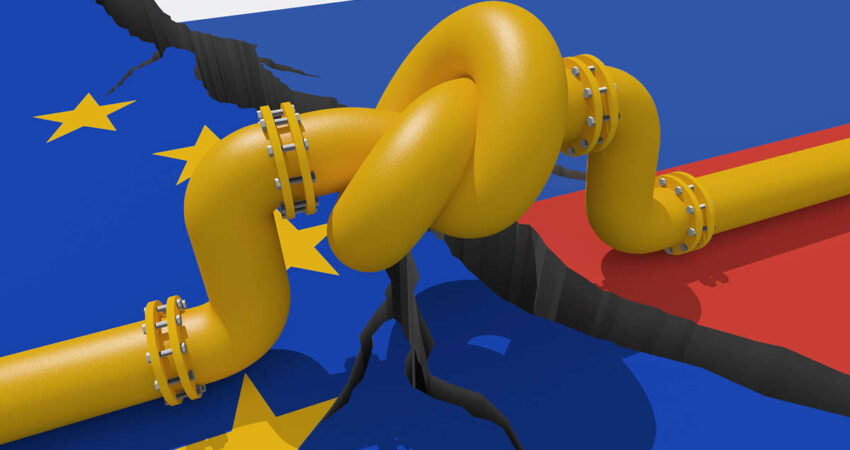Adobe Stock: #491215849
Contradictions continue to tear apart Germany’s ruling coalition. There is no agreement on either domestic or foreign policy between Olaf Scholz’s party, the Greens, and the Free Democratic Party. The media is pouring oil on the fire, pointing out the cabinet’s wavering and even opportunism in the form of inappropriate budget expenditure and a €60-billion hole that has developed as a result. The opposition CDU is understandably also putting pressure on the “traffic-light” coalition, accusing Alliance 90/The Greens and the FDP of being incapable of solving the energy crisis that has in many respects erupted after Germany abandoned energy cooperation with Russia in 2022. It is no secret that this crisis is negatively affecting domestic problems, as well as increasing ordinary Germans’ discontent with their own government.
There is just one issue on which the entire political spectrum is united, and that is the need to escape energy dependence and move the economy onto a green and fully independent track. After the beginning of the war in Ukraine, Berlin began to systematically diversify oil and gas supplies. Berlin also declared on principle that Russia could not count on its previous role as main energy partner in the future. In the medium term, Germany does not want to put its trust entirely in the role of Moscow or Qatar or even that of the United States, from where LNG supplies have come: it wants all sources of energy to be balanced, with none of them having a privileged position.
At the same time, experts are for now fairly sceptical about Berlin’s successes in building a new energy policy after its break with Moscow. Vijaya Ramachandran, Director for Energy and Development at the Breakthrough Institute in California, is convinced that Germany has driven itself into a corner with its energy policy, particularly through replacing nuclear energy with gas, pointing out that the country does not have that many options. According to her, although the production of renewable energy will be part of the long-term solution to the problem, the idea that this kind of energy can quickly replace Russian oil and gas is at best inadequate, and at worst could lead to catastrophe for western economies and consumers.
She says that the reasons are obvious: sun and wind energy can replace only some of the Russian gas used to produce electricity, and only when the wind blows and the sun shines. She explains that considerable reserve generating capacities are required, most of which run on natural gas. Moreover, she says, electricity is just a part of balancing energy: most Russian oil and gas is not used at power stations but for domestic heating, powering factories and fuelling cars, lorries, planes and ships: she points out that none of this can be adapted to using other types of fuel.
As for long-term plans, Berlin has not yet brought itself to look that far ahead. There is a very wide range of possible options. Among these, experts include resuming energy cooperation with Russia after the conflict in Ukraine is resolved.
The chairman of the German Bundestag’s climate committee and Left Party representative Klaus Ernst in particular advocates this. He considers that resuming an energy partnership could be advantageous for both Germany and Russia after the end of the war in Ukraine. “Currently, the EU and Germany have found themselves in a completely different competitive position in relation to the United States, where these prices are lower. This means that for a certain period of time we find ourselves in unfavourable circumstances. There is therefore sense in returning to a rational partnership with Russia in the energy sphere, at least until we start producing sufficient volumes of green energy. I therefore support returning to a rational partnership with Moscow as soon as possible,” he stated.
Günter Verheugen, an influential member of the SPD and former European Commissioner for Industry and Entrepreneurship, shares this point of view. In an interview with Bremen newspaper Weser-Kurier, he called the current foreign policy of Alliance 90/The Greens “fundamentalist.” “The process of reducing international tension in the 1980s – that political era had a strong influence on me. I didn’t just witness this policy – I was also involved in it. If Willy Brandt’s position had been that it wasn’t worth talking to Brezhnev, then the cold war would not have ended at all. If changes need to take place in an authoritarian country, that is not achieved through increasing military pressure: it can only be achieved through building relations of trust,” he claimed.
Of course, we’re not talking about a strategic partnership with Russia. However, private business would like to see Russia in particular in the role of supplier of natural gas for industry in the future. This could be either LNG or pipeline gas.
If it had not been for damage to the pipeline on the bed of the Baltic Sea, it is entirely possible that Berlin would have continued to buy hydrocarbon raw materials from Russia: experts believe this would have been likely, albeit on a limited scale. German business therefore does not rule out the possibility of repairing Nord Stream and resuming supplies of, for example, 10-15 cubic metres per year in the future, when the conflict in Ukraine is over. But for this to happen, the government needs to take a number of fundamental decisions right now – in particular to preserve the part of the pipeline that has remained intact, in order to prevent the destruction of internal parts of the underwater pipelines from corrosion caused by their being penetrated by seawater.

Adobe Stock: #416947044
On this, a statement by Michael Kretschmer, Minister President of Saxony, is interesting. He is calling on the government to guarantee the undamaged state of Nord Stream 1 and Nord Stream 2. In each of these pipelines there are two branches through which gas can be supplied to Germany. Only one pipe has remained intact, and this is in Nord Stream 2. The Saxon premier is convinced that preserving and renovating the Nord Stream pipelines is consistent with Germany’s national interests. “The infrastructure of this pipeline cost roughly €8 billion, and it can also provide supplies of hydrogen in addition to gas. If Putin goes, the pipeline can also become a means for his successor to restore economic relations with Germany. Nord Stream can be repaired now, but if this isn’t done, it will soon be irreversibly destroyed. We must repair it,” stated Kretschmer.
According to assessments by energy companies, it will be necessary to spend in the order of €100 million on the preservation itself. This is not such a large sum considering that the construction of Nord Stream 1 cost almost €8 billion, and that of Nord Stream 2 cost €9 billion, Kretschmer believes.
In fairness, it must be said that Saxony is an eastern German state, and how inhabitants of the eastern part of the country perceive the idea of resuming relations with Russia differs from the opinion of their compatriots in the west. Unfortunately there is no agreement at all in German society about the possibility of repairing relations with Russia after the end of the Ukrainian crisis.
While inhabitants of the former East Germany view the idea of restoring an energy partnership more positively, the majority of western Germans do not see the sense in finding themselves in energy dependence on Russia once more. German society remains divided. Recent research by the Friedrich Schiller University in Jena and the Zittau/Görlitz University of Applied Sciences showed that over the last thirty years, it has remained difficult for those from East German backgrounds to break through to top positions in the fields of politics, the media, law and culture.
As far as Russia is concerned, the line of Minister President of Saxony Kretschmer diverges significantly from the line of the federal government and also of the CDU. Kretschmer is calling for holding diplomatic talks with Russia and questions the necessity of such tough sanctions against Moscow. He is also in favour of Germany once again buying gas from Russia after the end of the Russian war in Ukraine. An opinion poll carried out in Saxony showed that 75% of those questioned welcome the suggestion of diplomatic talks with Russia.
But what do Germans as a whole think about this? There isn’t a very large number of advocates for restoring cooperation with Russia among the whole population. However, the continuing economic crisis in the country, caused in many ways by the switch away from buying oil and gas from Moscow, is gradually changing the mood of German citizens. It is the German economy that has suffered particularly badly from the consequences of Russia’s attack on Ukraine. High energy prices led to a sharp increase in inflation in Germany in 2022. In the opinion of many economists, the development of the war in Ukraine, energy prices, and inflation remain the most important factors of uncertainty for the economy in 2023.

Adobe Stock: #507983456
The German Council of Economic Experts expects Germany’s economy to contract by 0.4% this year and that it will fall by 0.7% next year. Economists are also now giving a more pessimistic forecast for 2024.
As ever, it is ordinary consumers who are suffering. They are having to cut down on gas due to its high cost: they are putting off starting to turn on the heating, reducing the temperature indoors, and cutting down on their use of hot water and electricity. Overall, gas consumption in Germany decreased by 14% in 2022 compared to the previous year.
A not insignificant role in this is played by Germany’s new gas suppliers, who in contrast to Russia with its cheap energy, have no hesitation in hiking prices. Robert Habeck, co-president of Alliance 90/The Greens and Germany’s economy minster, has already complained that the United States and Norway are using Germany’s disastrous situation and are demanding “exorbitant prices”. In such circumstances, the idea of a return to Russian gas after the end of the war in Ukraine is seeming ever more attractive in Germany.
Incidentally, this view is starting to spread in other European countries besides Germany. In October, the Oxford Institute for Energy Studies held a conference at which experts from the energy industry and politicians taking part in the event were asked whether Russia would once more become the most important supplier of natural gas in Europe after the end of the war in Ukraine. 40% said that it would, and 20% declined to say. But right now, no one could bring themselves to give a precise forecast.

